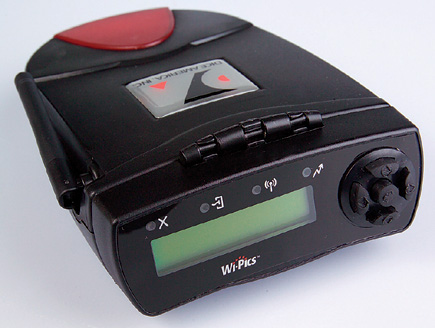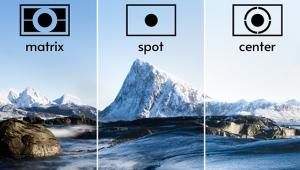Wi-Pics; Wireless Image File Transfer
Wireless transfer of photographic image files is nothing new--at least not in Internet years. Canon and Nikon have their own versions of such devices and while they are not inexpensive (about $1000) they are not that expensive if you really need to transfer image files wirelessly. The downside to Canon's WFT-E1A and Nikon's WT-2 is that both are designed to work with specific classes of digital SLRs and won't work with other digital SLRs. Now, Wi-Pics (www.wi-pics.com) gives you an alternative.
Wi-Fi-Pics
If your camera doesn't support any of the solutions from Canon and Nikon,
Wi-Pics is the only game in town. It's an ideal product for professional
photographers who require rapid transfer of their images for viewing, storing,
or printing, such as wedding and event shooters, sports and school photographers,
and photojournalists. The basic Wi-Pics system includes a replacement CompactFlash
card that is inserted into the camera's media slot. It allows any digital
camera (with a CompactFlash card slot) to transmit images via wireless networks
without modifying the camera's firmware or affecting camera performance
or battery life. A thin ribbon cable from this smart card connects to the Wi-Pics
module that allows transmission of image files to editing stations, servers,
or FTP sites via network access points. The unit has an Ethernet interface for
studio use and can also be configured with up to 40GB of built-in storage or
supplemental (two) CompactFlash storage cards.
 |
|
|
After the Wi-Pics unit has been powered up, it acts just like you have a normal
memory card installed. The Wi-Pics module is about the size of a personal CD
player (big but weighing just over 1 lb), can be worn on your belt, freeing
you to shoot events uninterrupted by having to move image files by "sneaker-net"
or limited by the number of cards you own.
When software in the Wi-Pics unit detects the recording of an image by the camera,
the image can be transmitted to a remote workstation or server via the unit's
wireless or wired network interfaces. Data is secure and is sent only to pre-configured
locations.
The upside is that when changing cards photographers can, and do, miss important
shots. And there's no need for extra flash cards that could get lost.
You won't need a runner to carry cards back and forth during a hectic
event to download the images into a computer. (Newspaper photo editors take
note.) Wi-Pics units transmit images securely only to the desired location without
photographer intervention. Meanwhile, images can still be retrieved, published,
displayed, or printed rapidly following capture.
 |
|
|
































